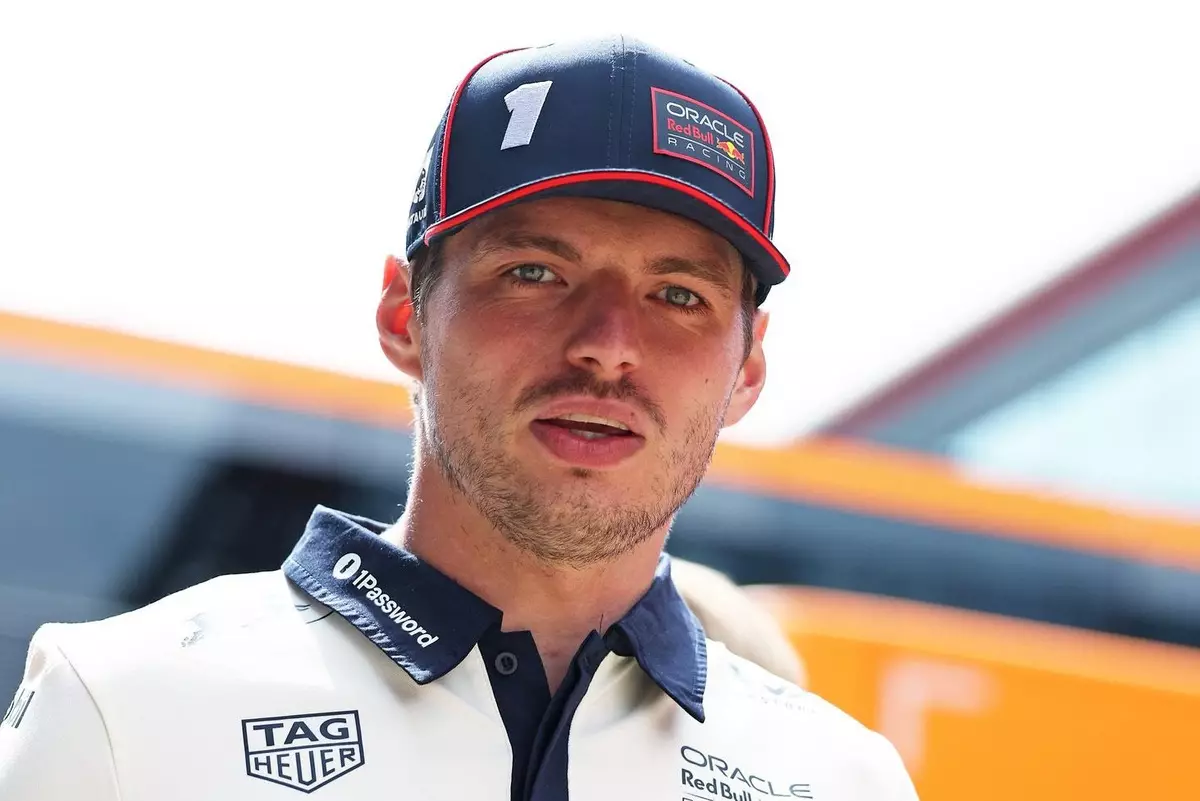Max Verstappen’s approach to his future in Formula 1 is both calculated and resolute. Unlike many of his peers who are quick to speculate or reveal their plans, Verstappen maintains a strategic silence. His discomfort with the media circus around speculation about 2026 reveals a desire to stay focused on the present season rather than getting caught in the whirlwind of rumors. This silence is not signs of uncertainty but rather a demonstration of his mental discipline. Verstappen recognizes that distractions only hinder his drive to remain at the pinnacle of the sport. His choice to defer any substantial discussion about his plans signals a psychological edge—one built on clarity of purpose and detachment from external noise.
His measured responses, especially during a tense media session at Silverstone, showcase a champion fully immersed in his craft. Verstappen’s wit and deadpan humor, such as the comment about the media’s short answers, subtly reinforce his control over the narrative. This calculated restraint hints at a deeper understanding: the less he says about his future, the less he hands opponents or commentators leverage to speculate or undermine his focus and confidence. In a sport where half the battle is mental, Verstappen appears to be reinforcing his mental fortress through silence and reserved communication.
The 2026 Horizon and His Current Commitment
Speculation about Verstappen’s future is rife, partly fed by overtures from other teams, notably Mercedes. Reports that Verstappen’s representatives approached Mercedes about future possibilities continually surface, yet Verstappen himself remains indifferent or at least non-committal. His direct dismissal of the idea to take a sabbatical in 2026—an outlandish yet not impossible scenario—reaffirms his intention to stay engaged with racing, at least in the near term. Unlike some drivers who chase long-term contracts or ambiguous commitments, Verstappen emphasizes consistency and loyalty to Red Bull, his current team of choice.
Verstappen’s attitude suggests a pragmatic understanding of the sport’s volatility. With regulations changing and teams still trying to find their footing, it would be foolish to commit prematurely. His acknowledgment that nobody can accurately predict which team will dominate in 2026 points to a realistic mindset. Staying focused on what he can control—his driving, performance, and commitment—appears to be his primary strategy. This approach not only keeps him grounded but also enhances his reputation as a driver who values stability amidst chaos.
A Multifaceted Racer with Eyes on the Future
While Verstappen’s primary passion remains Formula 1, he outwardly displays curiosity about other racing disciplines, notably GT3. His recent success with his GT3 team at the Spa 24 Hours underscores his broader enthusiasm for motorsport. Yet, he is careful to clarify that he has no intention of abandoning F1 soon. Pledging to continue racing in Formula 1 beyond 2028, Verstappen signals a long-term commitment to the sport that has catapulted him to greatness.
His desire to blend F1 with other forms of racing indicates a strategic approach to diversifying his racing portfolio. Verstappen’s participation in GT3 testing and racing will complement his F1 career, not replace it. This indicates a sophisticated understanding that engaging with different racing formats enriches his experience and keeps his skills sharp. More importantly, it aligns with his desire to stay motivated and passionate about racing at the highest level, avoiding the burnout that can sometimes plague athletes with singular focus.
The Road Ahead: Navigating Unknowns with Confidence
Despite the uncertainties surrounding regulations and team dynamics for 2026, Verstappen maintains a confident stance. His belief that a driver’s success hinges primarily on performance—driving whatever machinery he is given to its maximum—underscores his individualistic approach. He recognizes the unpredictable nature of F1’s evolution and refuses to be fazed by it. Unlike some who seek guarantees or stability through long-term contracts, Verstappen trusts that his talent and adaptability are enough to secure his winning ways.
His comments about the unpredictable rise of teams like McLaren in previous seasons serve as a lesson—nothing is certain in this sport. Verstappen’s commitment to delivering his best, regardless of the car’s regulation cycle, exemplifies a champion’s resilience. It’s this mindset that makes him both formidable and unpredictable, capable of maintaining dominance even when the landscape shifts dramatically.
In essence, Verstappen’s stance on his future and attitude toward racing illustrate a rare combination of confidence, strategic patience, and unwavering focus. While the swirling rumors and strategic maneuvers of teams and managers continue, Verstappen’s true strength lies in his disciplined approach to his craft. It’s this unwavering dedication that secures his legacy—not just as the reigning champion, but as a driver who refuses to be distracted by the noise of the future.


Leave a Reply